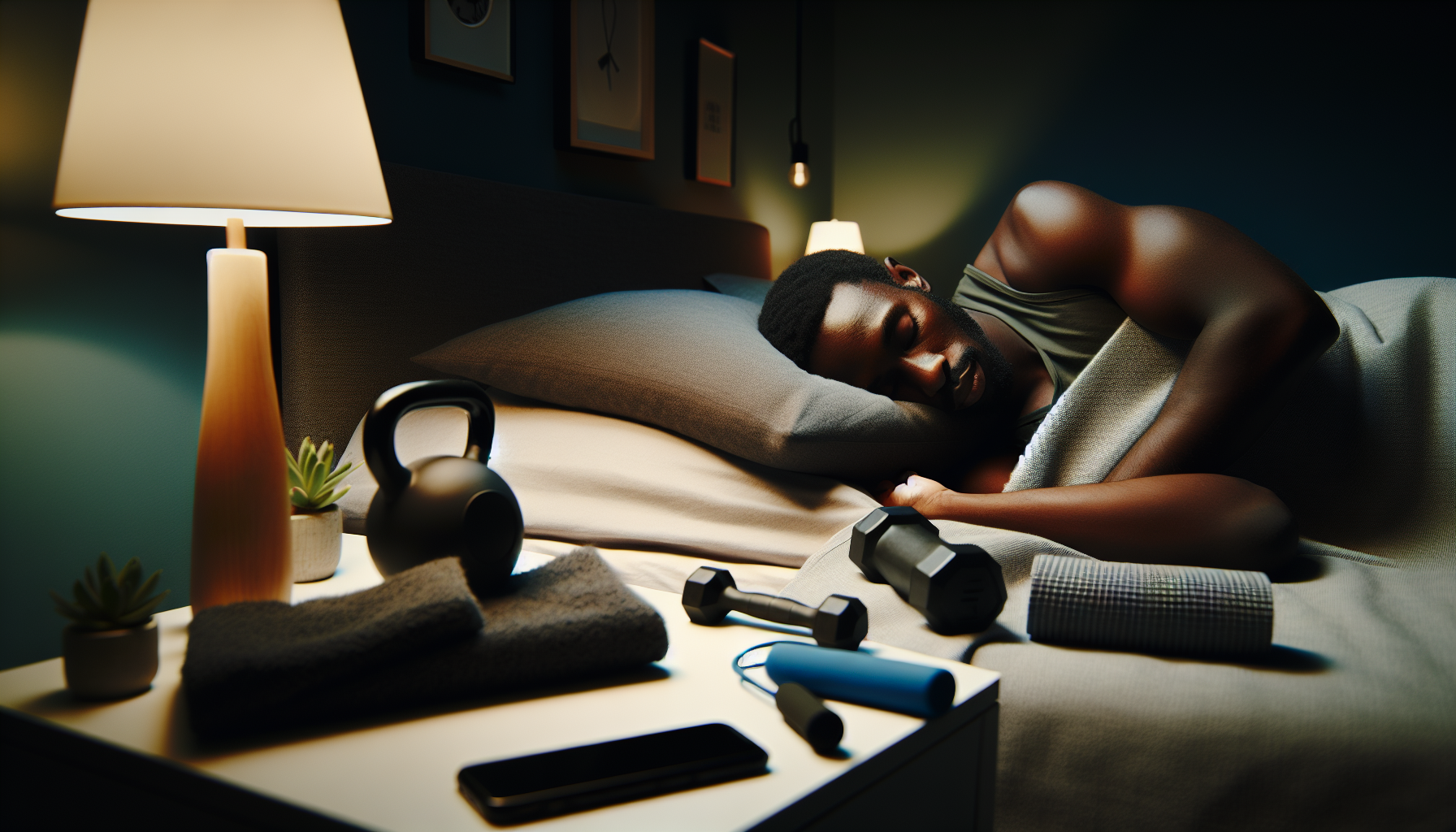In the quest for optimal health and wellbeing, two critical factors often emerge at the forefront: fitness and sleep quality. These elements of health are intrinsically connected, each impacting the other in profound ways. From the energy one needs to sustain a workout to the restorative power of sleep for muscle recovery, the synergy between fitness and sleep can dictate the success of your health regimen.
The Symbiotic Relationship Between Exercise and Sleep
The link between physical activity and sleep is supported by a multitude of research. Regular exercise has been shown to improve sleep quality, helping individuals fall asleep faster and enjoy deeper sleep. However, the relationship is not one-sided. Adequate sleep is essential for muscle repair, cognitive function, and hormonal balance, all of which contribute to a more effective fitness routine.
Fitness and Its Direct Impact on Sleep
Exercise triggers an increase in body temperature, and the post-exercise drop in temperature may promote falling asleep. Exercise also reduces stress and anxiety, which can otherwise hinder sleep. Moreover, engaging in regular physical activity helps to regulate the body’s circadian rhythm, the internal clock that dictates your sleep-wake cycle.
For insights into optimizing your workout routine for better sleep, consider the principles outlined in Advanced Techniques in Strength and Conditioning.
How Sleep Enhances Exercise Performance
Conversely, sleep serves as a foundation for physical fitness. During the deep stages of sleep, the body undergoes repair and recovery from daily activities and workouts. Growth hormone is released, which is essential for muscle growth and repair. Additionally, sleep helps to consolidate memory, including the motor memory, thereby enhancing the learning of new physical skills.
For more on the importance of rest in a fitness regimen, read Choosing the Best Post-Workout Recovery Methods.
Sleep Disorders and Exercise: A Two-Way Street
Chronic sleep issues, such as insomnia, can detrimentally impact one’s ability to maintain regular exercise due to fatigue and decreased motivation. Nonetheless, moderate aerobic exercise has been shown to improve symptoms of insomnia and other sleep disorders. This illustrates the importance of overcoming barriers to incorporate fitness into daily life, as emphasized in Implementing Fitness into Your Daily Routine.
Sleep Quality and Exercise Intensity
The intensity of exercise plays a significant role in how it affects sleep. Generally, moderate aerobic exercise is beneficial for sleep. However, engaging in high-intensity workouts close to bedtime can have stimulating effects, potentially leading to difficulties in falling asleep.
Timing Matters: When to Exercise for Optimal Sleep
The timing of exercise can influence sleep patterns. Morning or afternoon workouts have the most positive impact on sleep, while evening exercises can be either beneficial or disruptive, depending on the individual. It’s essential to listen to your body and adjust your exercise schedule as needed to ensure it promotes better sleep.
For a deeper understanding of how fitness routines can be balanced with sleep needs, How to Achieve Better Balance in Fitness Routines offers practical guidance.
The Role of Diet in Sleep and Exercise Performance
Nutrition plays a pivotal role in both exercise performance and sleep quality. A diet rich in nutrients supports the body’s recovery after workouts and contributes to better sleep. Certain foods may enhance sleep quality, such as those high in magnesium and melatonin, while others, like heavy or spicy meals, can disrupt it.
For a more comprehensive look at the impact of diet on exercise and sleep, refer to The Role of Diet in Muscle Definition.
External Resources Supporting Fitness and Sleep Quality
- A study from the Journal of Clinical Sleep Medicine highlights the positive effects of regular aerobic exercise on sleep quality and insomnia.
- The National Sleep Foundation offers an extensive collection of resources on sleep health, including how physical activity influences sleep.
- Research from Sleep, the official publication of the Sleep Research Society, provides insights into the complex interactions between sleep and physical activity.
The Broader Health Implications
The interplay between fitness and sleep extends to various aspects of health. For instance, better sleep is associated with improved immune function, while regular physical activity is known to bolster the immune system.
To learn more about the broader health benefits of fitness, consider exploring Fitness for additional information.
Practical Tips for Merging Fitness with Sleep Hygiene
- Schedule Workouts Appropriately: Aim for morning or early afternoon workouts to avoid overstimulation before bedtime.
- Establish a Relaxing Pre-Sleep Routine: Engage in low-impact activities like yoga or stretching in the evening to signal your body it’s time to wind down.
- Mind Your Diet: Avoid heavy meals and caffeine before bedtime to prevent sleep disruption.
- Create a Sleep-Inducing Environment: Ensure your bedroom is cool, dark, and quiet to promote better sleep.
Conclusion
Achieving a harmony between fitness and sleep quality is a journey of personal discovery and routine adjustment. By understanding the profound connection between these two pillars of health, you can create a lifestyle that not only enhances your physical capabilities but also enriches your sleep experience, leading to a healthier, more vibrant life.



